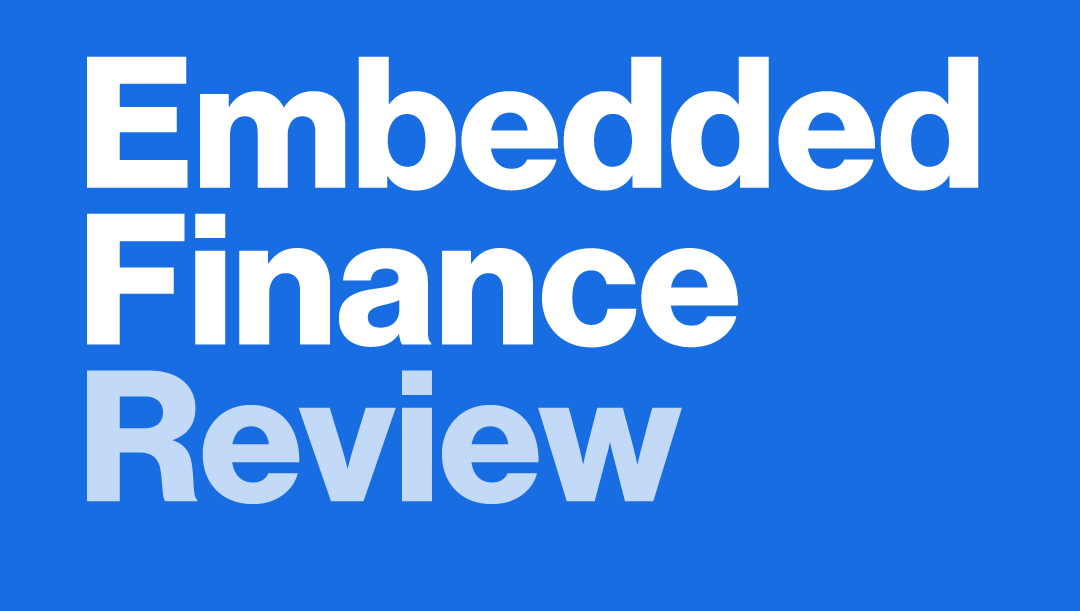Hi {{first name|embedded finance friend}}
Welcome to the Fintech Jungle. That's the theme for our upcoming Berlin event on November 19th at 6pm.
Building fintech products means navigating a jungle: Build or buy? Which infrastructure provider? These decisions can make or break your product.
Join us for an evening with real insights on stage and authentic networking off stage.
Sponsored by Banking Circle and Visa.
This newsletter went out to 1,710 subscribers.
Are you new to Embedded Finance? Check out my slide deck, long article and YouTube video. If you need additional support, visit my website or get in touch with me.
This edition covers
And now let’s dive in 👇
Advertisement:

Payments have embedded themselves into everything (your favourite retail brands, business platforms, social media apps, you name it!). The best versions make money movement so seamless, you forget it's there.
Marqeta powers many of these experiences.
Historically, building that kind of experience meant choosing between proven OR ground-breaking, stability OR flexibility.
Embedded Insurance for Horses (Podcast)

Embedded insurance for horses? That's what I thought too. Until I spoke with Finlay Dargan from Equine MediRecord.
Here's the problem: 99% of horses globally have zero insurance. Too expensive. Too much hassle. Too much paperwork.
Here's the solution: Embed it directly into the software horse owners already use daily.
What I found fascinating:
6-9 month insurance integrations now take 1 week
Vertical SaaS platforms sitting on a goldmine of data
Embedded insurance is 3-4 years behind fintech (huge opportunity)
The winning combo: 100-year-old insurance brands + modern tech
The whole episode with Finlay (Equine MediRecord), Paul Prendergast (Kayna), and Anthony Borgman (WTW) is available on Spotify, Apple Podcasts and YouTube.
Worth a listen even if you've never been near a horse.

Betterfly, a Chile-headquartered startup that provides a wellbeing and insurance platform in Latin America and Spain, shared some insights into their card program in the Spanish market: Over 70% of employees activate benefits after onboarding, and more than 80% use cards regularly (Betterfly Product Page, Swan).
How does the card work? Spanish tax law lets employees allocate up to 30% of gross salary to tax-advantaged benefits: meals (€11/day tax-free), transport (€1,500/year), childcare and training. Employees who can make use of these tax advantages can boost their take-home pay by 15% without any salary increase. Since it’s so beneficial, more than 70% of Spanish companies already offer it.
Why not 100%? Without a tailored software product, the process can be pretty tedious: tracking daily limits, filing receipts and audits from the tax authority. Companies like Betterfly fix this: they build the compliance layer directly into the card itself. The card only works when it’s within the requirements, such as daily limits for the appropriate merchant.
Betterfly is not alone in this space. I looked at the Spanish market some years ago and remember Cobee and Payflow with a similar solution (but probably many more). The incredibly strong tax benefits are obviously a huge driver, and the cards become a daily routine: metro rides, lunch, wellness activities.
Similar employee benefit card providers exist across Europe, but adoption varies significantly. The biggest factor? The size of the tax benefits. In Germany, for example, employers can provide €50 per month in non-cash benefits as well as meal vouchers, transport subsidies, and childcare support. The limits are reasonable but nowhere near Spain's 30% threshold.
German providers also faced another challenge: regulatory uncertainty around whether cards would be allowed for tax benefits at all. Back in 2020/2021, when I was trying to sell card solutions to tax benefit providers, this was a major concern. This changed soon after, and cards became an accepted delivery method. That said, stories like this regulatory uncertainty help explain why card adoption for employee benefits developed so differently across European markets.
SAP and Oracle (continue to) embed payments directly into their platforms

Three major announcements dropped this week, showing that embedded finance is moving from startups straight into the core of enterprise software.
Firstly, Adyen went live with SAP's Open Payment Framework (OPF), a pre-built integration for SAP Commerce Cloud that eliminates manual payment integrations (The Paypers). Secondly, Brex became the first fintech issuer embedded within Oracle Fusion Cloud ERP, enabling customers to select Brex virtual cards directly from payables workflows (PYMNTS). And thirdly, KNEX partnered with Visa to embed virtual card capabilities directly into Oracle ERP systems (Finextra).
This isn’t the first time we are seeing SAP or Oracle making moves in Embedded Finance. But all three announcements in one week show that the momentum is increasing.
Also, what's standing out for me is: these are not the traditional payment partnerships anymore. The focus is on ‘embedded’: SAP's OPF is described as "pre-built, cloud-native" with Adyen as the first PSP live on it. Brex's virtual cards can be selected directly within Oracle's payables workflows. The KNEX Visa adapter is a "pre-configured, low-code integration layer" that facilitates payments within the ERP.
In other Embedded Finance news
Pleo launches cash management suite for Germany and UK (Finextra)
Toqio and the Deloitte Spain team on embedded finance (Finextra)
New EBA report finds that white labelling is widely used in banking and payments (The Paypers)
And Neobanks are doing non-financial things:
How did you like this edition?
Thank you for reading. I hope you enjoyed this edition.
My newsletter, podcast, and event activities are free, but I need your support to continue. Please share Embedded Finance Review with your friends and coworkers, and let me know your feedback (links above).
And if you need help understanding, building, or launching an embedded finance product, visit my website and get in touch with me.
Best wishes from Berlin,
Lars Markull (LinkedIn)


